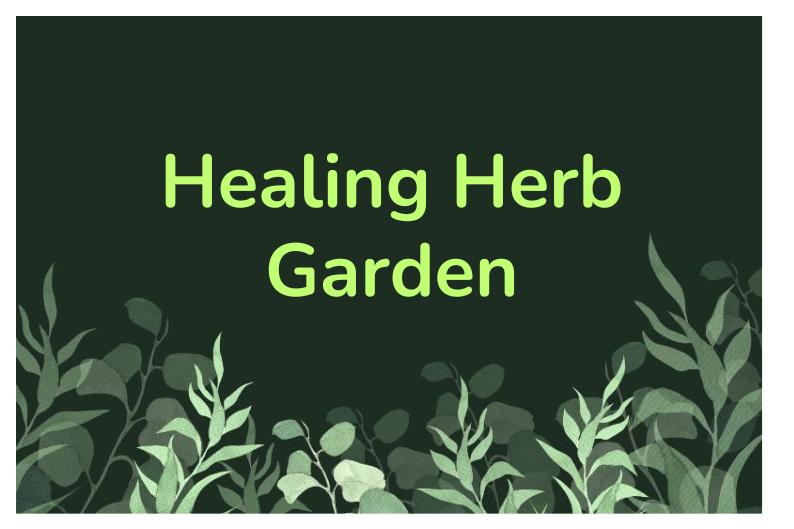
Start Your Healing Garden: Grow Medicinal Herbs for Beginners
Grow Herbs, Beginner Garden, Medicinal Plants: Start Your Healing Garden Today
Growing herbs at home can be simple, even for beginners. With a little space and regular care, anyone can start a small garden full of medicinal plants that support wellness every day. From calming chamomile to soothing peppermint, growing your own herbs gives you access to fresh, natural remedies that boost health and well-being.
This type of gardening fits well with natural health principles from experts like Gary Brecka and Barbara O’Neil, who see plants as important tools for building a healthy lifestyle. For those just starting, MC Herbs' natural supplements can make the journey even easier, helping people benefit from these plants whether they grow their own or not. Discovering how to start a beginner garden with the right plants is a rewarding step toward a more natural life.
Key Takeaways
- Anyone can create a beginner medicinal herb garden at home.
- The right herbs offer simple, natural ways to support overall wellness.
- MC Herbs provides natural supplements that fit perfectly with homegrown herbal routines.
Beginner’s Guide to Growing Medicinal Herbs
Growing a medicinal herb garden at home is simple with the right guidance. Anyone can raise healthy medicinal plants using practical tools, careful plant choices, and basic earth-friendly methods.
Choosing the Best Medicinal Plants for Your Garden
Starting with easy-to-grow medicinal herbs is key for new gardeners. Plants like chamomile, peppermint, calendula, lemon balm, and echinacea thrive in most climates and need little upkeep. These herbs have a long history in natural wellness and traditional healing.
Many beginners enjoy aloe vera for its skin-soothing gel or lavender for its calming scent and beauty. Thyme and sage add both flavor and support immune health. Grow these herbs from seeds or small plants to see quicker results.
For a deeper dive into suitable plant types and their benefits, browse the top options in this garden-focused guide to starting your medicinal herb garden.
Essential Tools and Materials for Herb Gardening
A simple set of tools can make herb gardening smooth for beginners. They will need a trowel, pruning scissors, watering can, and garden gloves. Raised beds or large containers work very well for herbs, allowing for good drainage and simple care.
Compost is especially important for building healthy soil. A strong mix of organic compost and garden soil helps medicinal plants grow lush and full of natural goodness. Mulch keeps moisture in the ground and stops weeds from taking over.
MC Herbs recommends storing seeds and dried herbs in glass jars. This supports potency and freshness. For those who want to supplement their harvest, MC Herbs offers natural products made from many of these same plants.
Planting and Caring for Easy-Grow Herbs
Herbs need a sunny location, as most varieties enjoy at least six hours of sunlight each day. Space plants according to their needs to let air flow freely and prevent mildew. Water herbs regularly, but don’t overdo it—well-drained soil is essential to avoid root rot.
A simple planting table can help:
| Herb | Light | Watering | Best Method |
|---|---|---|---|
| Peppermint | Full sun | Moderate | Cuttings |
| Chamomile | Full sun | Light | From seed |
| Calendula | Full sun | Moderate | From seed |
| Lemon Balm | Part sun | Moderate | From seed |
| Lavender | Full sun | Low/Moderate | From seed |
Harvest leaves and flowers in the morning for best flavor and highest quality. Hang the cuttings to dry in a shaded area, then store for year-round use in MC Herbs air-tight containers.
Tips for Organic and Sustainable Herb Gardens
A successful medicinal herb garden grows best in harmony with nature. MC Herbs and many wellness experts encourage avoiding pesticides and choosing organic gardening methods. Rotate herbs in raised beds or containers to keep soil healthy and break pest cycles.
Homemade compost feeds plants naturally and costs almost nothing. Use dried leaves, fruit peels, and kitchen scraps to enrich your soil. Water with rainwater if possible, and mulch with straw or bark to protect roots.
Plant herbs close together to create a living mulch and keep weeds low. These tips help ensure a steady supply of safe, potent herbs for herbal medicine, both in the garden and in supplement form found at MC Herbs. For more container and space-saving ideas, check out this beginner’s guide for medicinal herbs in containers.
Top Herbs to Grow for Beginners and Their Healing Uses
Starting a medicinal herb garden can offer calming teas, natural stress relievers, fragrant additions to daily routines, and powerful roots and flowers that support wellness. These herbs are beginner-friendly, simple to grow, and each plant has unique properties that make a difference every day.
Chamomile: Calming Blooms for Tea and Remedies
Chamomile is famous for its daisy-like flowers and gentle effects on the body. This herb grows well in sunny spaces with well-drained soil. After blooming, the flowers can be picked and dried to make soothing chamomile tea, known for encouraging relaxation and better sleep.
Chamomile can help calm nerves and support restful evenings. People use it as a gentle remedy for mild discomfort, making it helpful during stressful or busy days. Adding chamomile to warm baths or homemade salves can soothe irritated skin.
MC Herbs offers chamomile supplements and teas that harness these calming properties to fit into any evening routine. Many natural health advocates like Gary Brecka and Barbara O’Neil recommend chamomile for overall relaxation and simple stress relief.
Lemon Balm and Mint: Refreshing Helpers for Stress and Digestion
Lemon balm and mint are prized for their refreshing leaves and easy care. Both grow fast in containers or garden beds and attract bees and butterflies to the yard.
- Lemon balm has a gentle lemon scent and can brighten teas, summer drinks, or fresh salads. It is known for helping calm mild anxiety and supporting clear thinking.
- Mint, especially peppermint, is often used after meals to help with digestion and freshen breath.
MC Herbs includes both lemon balm and peppermint in supplement blends designed to aid relaxation and healthy digestion. Using lemon balm and mint daily, through teas or fresh leaves, is a favorite among many seeking natural ways to handle everyday challenges.
Lavender, Thyme, and Rosemary: Fragrant Herbs for Mind and Body
Lavender, thyme, and rosemary not only fill the garden with wonderful smells, but also have benefits for mind and body.
- Lavender: Famous for its calming scent. Dried flowers can be used in sleep sachets, baths, or teas to support rest and soothe nerves.
- Thyme: Grows in clusters and is used in foods to boost taste. Thyme supports healthy breathing and can help the body handle coughs or scratchy throats.
- Rosemary: Thrives in sunny spots and brings a fresh, woodsy flavor to food. Rosemary may help with focus and memory, and many use it in teas or homemade oils for scalp care.
Barbara O’Neil often recommends these herbs as staples for mental clarity and relaxation. For those looking for an easy way to use these herbs daily, MC Herbs offers blends of lavender, thyme, and rosemary in convenient capsules and oils.
Calendula, Garlic, Ginger, and Turmeric: Powerful Roots and Flowers
Calendula, garlic, ginger, and turmeric add color, spice, and strength to the garden and kitchen. Each one is known for its natural support for different wellness needs.
- Calendula: Bright orange-yellow petals are added to teas, oils, or creams. The flowers can be used for gentle skin support and to encourage skin recovery.
- Garlic: Easy to grow, garlic bulbs are harvested in summer. Garlic is valued for helping keep the immune system strong, and is often eaten raw or cooked.
- Ginger: Thrives in pots indoors or in warm garden spots. Its spicy roots are added to tea and meals for digestive comfort and to support the body during cold weather.
- Turmeric: Bright orange roots are used in cooking and drinks. Turmeric is known for its support for joint comfort and natural wellness.
MC Herbs offers supplements and powders made from these roots and flowers, making it simple to add them to any health plan. These vibrant plants are all beginner-friendly and recommended by natural health leaders for their unique and gentle benefits.
For more ideas on which medicinal herbs to grow, visit the list of easy to grow medicinal herbs and discover even more ways to support a home with natural choices.
Frequently Asked Questions
Medicinal gardening helps people support their health in ways that are hands-on and tailored to their families. By growing and using herbs, anyone can connect with natural wellness and feel empowered about their daily choices.
What are the staple herbs to start a medicinal garden?
Popular starter herbs are chamomile, peppermint, calendula, echinacea, and lemon balm. These plants are easy to grow and support healthy digestion, calm, and skin comfort. Beginners enjoy how simple these herbs are to maintain.
Many gardeners also add lavender and sage because both herbs have traditional uses and good germination rates. MC Herbs offers starter packs that feature these well-loved varieties for new gardeners.
How should I arrange my plants in a medicinal herb garden?
Group plants with similar sunlight and watering needs together. Taller herbs, like echinacea, should go in the back or center, with shorter plants like thyme or calendula in front. This saves space, helps the herbs thrive, and makes tending the garden easier.
Choose a sunny spot with good soil drainage. Small raised beds or container gardens work very well for beginners learning to manage different species side by side.
What herbs offer the greatest health benefits for home gardens?
Peppermint is favored for calming digestion and its fragrant leaves. Chamomile soothes the mind and body. Lemon balm supports relaxation and resilience. Echinacea and calendula strengthen wellness and comfort skin.
Herbalists like Gary Brecka and Barbara O’Neil encourage focusing on these basics because their benefits are both broad and easy to use at home. Supplementing with MC Herbs products can help maximize these positive effects.
Which herbs would you recommend for a compact, small-scale medicinal garden?
Choose compact plants like thyme, chives, basil, and oregano. These not only give flavor to food but also have health-boosting qualities. Lemon balm and calendula grow well in pots and provide gentle support for stress and skin health.
Container gardens can also feature small varieties of sage and peppermint. These plants are well-suited for balconies and windowsills.
Can you suggest a comprehensive list of herbs to include in a beginner's medicinal garden?
Start with peppermint, chamomile, lemon balm, echinacea, calendula, sage, thyme, and lavender. Basil and oregano are also smart picks for both health and cooking. Each plant has unique benefits and is easy to grow.
This selection covers a range of uses for the stomach, mind, and skin. Blogs like this beginner’s guide also offer helpful tips on planning a complete starter bed.
What essentials should I look for in a medicinal herb garden starter kit?
Make sure the starter kit has high-quality seeds, easy-to-follow instructions, and simple gardening tools. Potting soil and plant labels are useful for tracking new herbs as they grow. MC Herbs kits often contain blends of seeds picked for their natural benefits and hardiness.
Look for kits that include care tips tailored for beginners, ensuring first-time gardeners have guidance every step of the way. This helps create a rewarding experience from planting to harvest.
